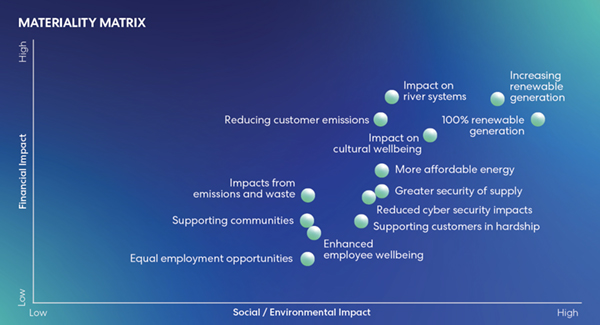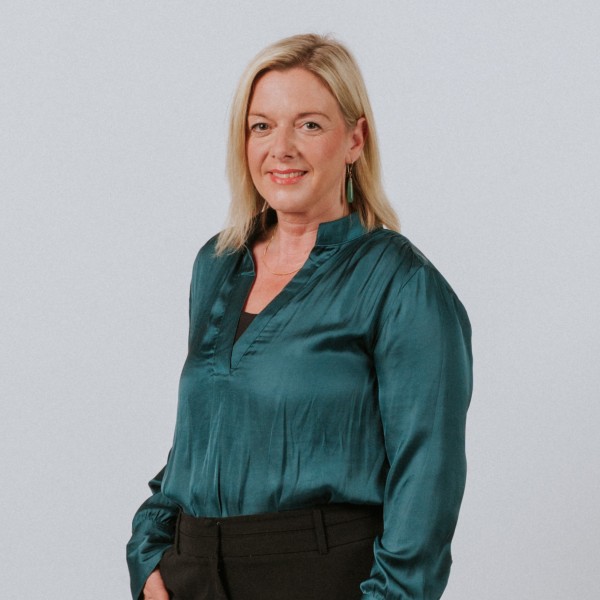Something’s changed in Meridian’s reporting for the last financial year, and it’s not just the cover on the Integrated Report.
For the first time, Meridian is reporting on double materiality across its full suite of material impacts. Or, more simply, how we impact the environment, society and stakeholders, and the potential financial cost of those impacts.
This puts Meridian among just a small number of early adopters in New Zealand.
“Materiality is a cornerstone of impact management and sustainability reporting. Double materiality is recognised as global best practice, so we knew it was a step that was important for us to take,” says Claire Shaw, Meridian’s GM for Corporate Affairs & Sustainability.
But it was also a step that needed some experimentation.
It started with the creation of an online survey to assess 27 potential impacts based on their severity, likelihood and financial impact. They included known and potential impacts ranging from Meridian’s contribution to renewable energy generation, its support for employee and community wellbeing to impacts on waterways, biodiversity and cultural values arising from electricity generation. 
A group of internal impact experts (specific to each impact, such as environment or human rights specialists) completed the survey, replacing workshops that Meridian had previously used and putting a sharper focus on each impact with more expert insights and opinions.
With financial impacts, there was a question mark over whether those closest to each impact would be fully across its potential long-term financial implications, and how consistent this would be across the groups scoring each impact.
“Our solution was to conduct a parallel survey with a group of finance and risk experts appointed by our CFO, which meant we could compare two average scores for each impact,” says Claire Shaw.
“In most cases the results were pretty close, which was great, but where there was a difference of more than 10% we used an average of the scores, which was only needed for seven of the 27 impacts assessed. That gave us confidence in the ability of our impact experts to score financial impacts, but we’ll retain the finance and risk option as a validation measure.”
External stakeholders weren’t included in this year’s materiality assessment because of a shift to a new assessment programme that alternates between what Meridian calls review years, such as FY24, and reassessment years.
Review years involve an internal process that considers only the material impacts reported in the previous year. Meridian will review and rescore those based on the results of that year’s internal survey, as well as reviewing the targets set for each impact and the progress made in achieving them.
Reassessment years will involve the same internal process plus external stakeholder engagement, and will encourage Meridian to consider impacts beyond those that are currently reported.
To gear up for the first reassessment year in FY25, Meridian is embarking on a major stakeholder research project. Blending qualitative and quantitative research, and covering 500 stakeholder groups over two years, this will provide deep insights into the company’s material impacts and help the company adopt an evidence-led approach to stakeholder relationships.
“We’re excited to increase our engagement with stakeholders on this project and anticipate there will be more to learn and act on as a result of this research,” says Claire Shaw.
“Our sector and business are evolving rapidly and we’re building more projects in more communities than ever before. It’s absolutely the right time to be embarking on a project like this.”
The stakeholders involved in the research range from customers and communities to Meridian’s supply chain, industry peers, programme partners, and sustainability experts. There will also be a kaupapa Māori approach to engaging iwi, hapu and rūnuka.
“We’ll learn a lot about how we’re perceived, how much we’re trusted, and what people expect from us and how we deliver on our promises,” says Claire Shaw.
“It is information that can only help strengthen our relationships.”

Claire Shaw - General Manager Corporate Affairs and Sustainability